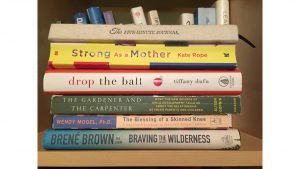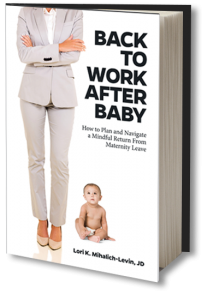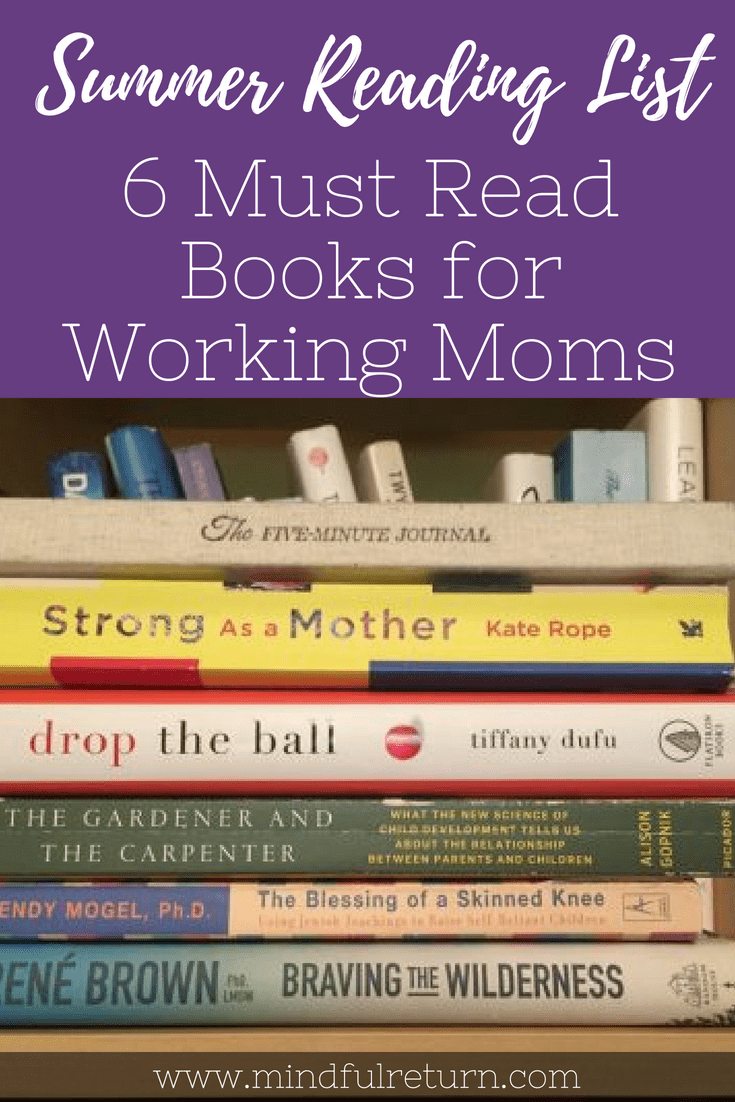 Welcome to the third annual Mindful Return summer reading list for working mamas! Every year, I seem find more and more nonfiction books that delight, inspire, and teach me. This year was no exception.
Welcome to the third annual Mindful Return summer reading list for working mamas! Every year, I seem find more and more nonfiction books that delight, inspire, and teach me. This year was no exception.
If you’re looking for the prior two book lists I published, here are the links – I still highly recommend all of the books on both lists:
- A Working Mama’s 2017 Summer Reading List: 6 Inspiring Reads
- A Working Mama’s Summer Reading List: 6 Picks to Fill You Up
When do I find time to read? On my metro commute (more on finding your zen on the way to work here), and a few pages at night before bed. That each of these three lists contains exactly 6 books probably reflects the fact that it takes me about 2 months to finish one!
Now, on to the list. And as always, if you’re a new or newish working mama, I hope you’ll check out my own book, Back to Work After Baby: How to Plan and Navigate a Mindful Return from Maternity Leave.
2018 Working Mama Summer Reading List
The Gardner and the Carpenter: What the New Science of Child Development Tells Us About the Relationship Between Parents and Children, by Alison Gopnik
- Why read it? Because it’s written by a grandmother who is a scientist and a philosopher. Need I say more? Seriously, though, in a world where we always seem to be trying to “measure” things related to children, parenting, success, and work – and, dare I say, “standardize” everything – this book is a breath of fresh air. The author weaves in the science of evolution and personal stories in a truly beautiful way.
- Favorite quote? “How do you deal with variability and change? Mathematical models (and common sense) suggest that you meet variability with variability. By varying what individual children are like, how they think and develop, and what they learn from others, all those children stand a better chance of survival when things change…The fact that so many people take care of human children also ensures that children are exposed to a wide variety of information and models…By now, it should be obvious why, from an evolutionary perspective, parenting isn’t a good model for parents and children. Caring for children, nurturing them and investing in them, is absolutely critical for human thriving. Teaching children implicitly and explicitly is certainly important. But, from the point of evolution, trying to consciously shape how your child will turn out is both futile and self-defeating.”
Strong as a Mother: How to Stay Healthy, Happy, and (Most Importantly) Sane from Pregnancy to Parenthood, by Kate Rope
- Why read it? This new book is the most compassionate guide to new motherhood I’ve read. Rope’s entire focus is on supporting mothers’ mental health and resiliency. She interviewed tons of experts and provides practical and calming advice. It’s the book I want to put in the hands of every brand new mom. And I learned a lot from it, even being 7+ years into this parenthood thing.
- Favorite quote? This quote reflects an important theme throughout the book, one that’s as applicable to the circumstances of birth as it is to many other parenting challenges we face. “There will be a lot of pressure from friends, relatives, and even medical professionals to put your birth behind you and just be grateful that ‘you’re healthy and your baby is healthy.’ But there’s a big problem with that well-intentioned approach. ‘That’s not the way emotions work,’ says psychotherapist Sarah Best, LCSW. ‘If you try to wish them away, or stuff them down inside you, they just come out later in less helpful ways.’ Acknowledging your emotions is one of the best things you can do.”
Drop the Ball: Achieving More by Doing Less, by Tiffany Dufu
- Why read it? Dufu’s memoir is a working mama must-read. Yes, it’s her own life story, but her points are backed up by research, and her advice is as poignant as it is practical. If anyone is helping shift paradigms in our conversations about women in leadership, it’s Dufu.
- Favorite quote? “If women truly want men to step up at home, we have to start seeing them not as dumb, useless, or selfish, but as intelligent, capable, and generous agents of change in our lives. When we do this, we increase the likelihood they’ll measure up as husbands, fathers, and human beings. We also ignite our own possibilities. On the other hand, our perpetuation of the dumb-dad myth stifles everyone’s potential. By refusing to wrap our brains around men’s ability to perform at home, women fail to empower men as true partners who can help us achieve our own professional aspirations. In the end, we only hurt ourselves.”
Braving the Wilderness: The Quest for True Belonging and the Courage to Stand Alone, by Brené Brown
- Why read it? Because reading Brené Brown is simply good for the soul. And I can’t seem to write one of these lists without her on it. Here, she covers everything from the disconnected state of society, to the longing to belong, to boundaries, to paradoxes (e.g., “Speak truth to bullshit. Be civil.”). I’ve underlined half the book. No joke.
- Favorite quote(s!)? “Social interaction makes us live longer, healthier lives. By a lot. [Susan] Pinker writes, ‘In fact, neglecting to keep in close contact with people who are important to you is at least as dangerous to your health as a pack-a-day cigarette habit, hypertension, or obesity.” And also: “Stop walking through the world looking for confirmation that you don’t belong. You will always find it because you’ve made that your mission. Stop scouring people’s faces for evidence that you’re not enough. You will always find it because you’ve made that your goal. True belonging and self-worth are not goods; we don’t negotiate their value with the world. The truth about who we are lives in our hearts. Our call to courage is to protect our wild heart against constant evaluation, especially our own. No one belongs here more than you.”
The Blessing of a Skinned Knee: Using Jewish Teachings to Raise Self-Reliant Children, by Wendy Mogel, Ph.D.
- Why read it? The book and the author’s personal experiences are based in Jewish teaching – but the lessons aren’t just for Jewish parents. Some points are a bit dated (copyright is 2001), but her lessons such as “teaching your child not to panic over pain” and “raising your children to leave you” are timeless.
- Favorite quote? This is just one example of the practical wisdom woven into this book: “To view the chore options objectively, start by thinking about the kinds of jobs your child might have to do if he were one of a family of six children, where without everyone’s contribution the whole operation would falter. Marguerite realized that if Sara left her shoes, socks, and toys all over the house in a bigger, busier household, she wouldn’t be able to find them. She also realized Sara would have to help with table setting and clearing and perhaps even help take care of the younger children.”
The Five Minute Journal: A Happier You in 5 Minutes a Day, by Alex Ikonn and UJ Ramdas
- Why use it? Note, I said “use” here, not “read.” This journal is absolutely perfect for the working mama with little time. Each page contains prompts for the morning and for the evening. And they are truly designed to take only 5 minutes at a sitting. The gratitude-related prompts are the same each day, though there’s a different inspiring quote at the top of each page. There’s no date on any of the pages…so no guilt if you skip a day or two!
- Favorite quote? One of my favorite “top-of-page” quotes is “Remove those ‘I want you to like me’ stickers from your forehead and, instead, place them where they truly will do the most good – on your mirror!” – Susan Jeffers
If you’ve read anything recently that has helped you with life as a working parent, please tell us about it in comments below. Happy summer reading, all!
 If you need more help getting your head in a better place to return to work after maternity leave, join us for the next session of Mindful Return.
If you need more help getting your head in a better place to return to work after maternity leave, join us for the next session of Mindful Return.
Want more practical tips on working parenthood? Check out my book, Back to Work After Baby: How to Plan and Navigate a Mindful Return from Maternity Leave.



If you have older children (tweens or teens), Wendy Mogel’s The Blessing of a B-Minus is also a supportive, thoughtful and helpful read.
Ooh – sounds like I will need to get that one as my boys get older. Thank you for the recommendation, Susan!